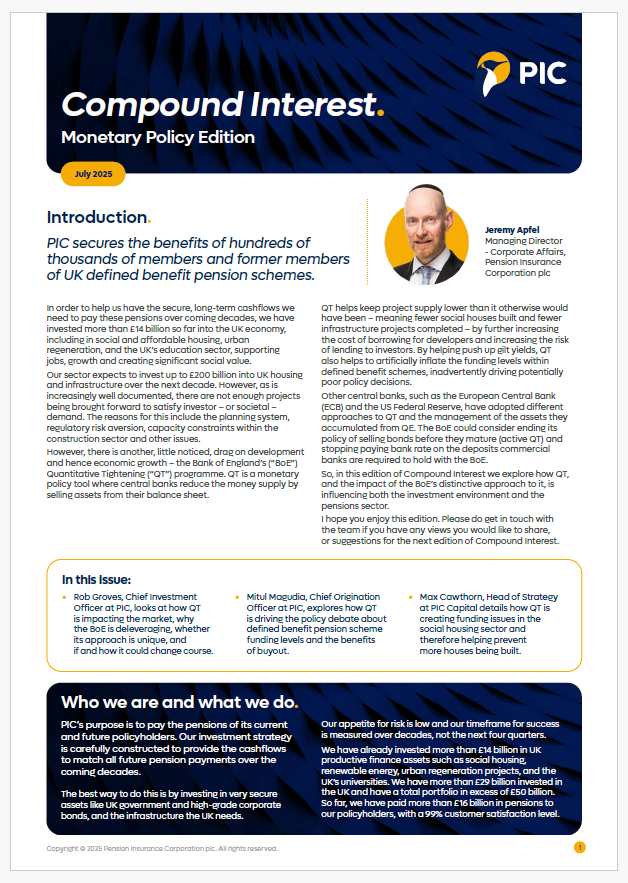About Us
Trustees
Policyholders
Purposeful investments
Investors
New & insight
Is improved understanding of the creation of social value the key to unlocking Britain’s economic development and productivity growth?
At PIC we are major investors in UK infrastructure and regeneration projects. We think that, as well as providing secure, long-term cashflows that match the pension payment we have promised to pay our customers, such investments are key to the delivery of social value, and are essential in driving economic growth in the UK.
The demand for such projects is growing, with the sector we operate in – the pension risk transfer market – expected to have up to £200 billion to invest in UK infrastructure over the next decade, as we take on increasing amounts of pension scheme liabilities from defined benefit schemes. We see no shortage of domestic capital to support viable projects. There just aren’t enough viable projects to invest in.
Regeneration projects – broadly, but not exclusively defined as the development of built environment and infrastructure projects on urban brownfield sites – should be a key plank of any plan to reinvigorate regional economic growth and raise Britain’s productivity levels.
So, why are so few of these projects getting off the ground? Partly we see this as being related to the UK’s status as a BANANA economy (“Build Absolutely Nothing Anywhere Near Anything” (or “Anyone”).
But we also think that the social value generation of such projects is being underplayed.
Regeneration projects create significant social value for local areas, including skilled jobs, apprenticeships, improved healthcare outcomes, and economic inflows into local businesses.
We think communicating these benefits is key to helping overcome these challenges. Already some long-term investors, including the public sector, as well as private developers, are starting to change how they describe these projects. But more is needed to help local authorities successfully bring forward more of these types of developments.
In this edition of Compound Interest we explore the barriers to more regeneration projects being brought forward, why that matters, and why breaking them down should be right at the top of the political to-do list for the next government. We also take a look at what social value looks like during a project’s construction phase, as well as during its operational life, and why these beneficial outcomes are crucial for all the main stakeholders – local authorities and the communities they represent, national politicians, as well as developers and long-term investors.

We’d be delighted to hear from you. Whether you have a specific query raised in this issue of Compound Interest, or whether you’ve a question you’d like us to answer in the next issue.
Please email any questions or observations to apfel@pensioncorporation.com